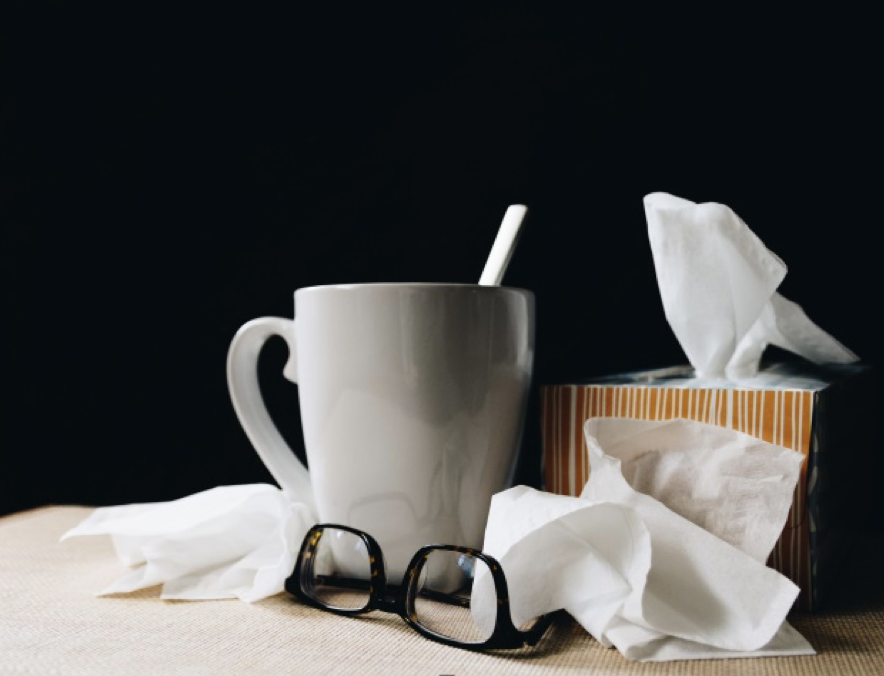 Though there are signs that the 2018 flu season is finally letting up, precautions are still needed to safeguard your health. Even if you got your annual flu shot, with the two common flu strains going around, there are more tactics you need to employ to keep yourself—and your loved ones—safe from this intense illness this year.
Though there are signs that the 2018 flu season is finally letting up, precautions are still needed to safeguard your health. Even if you got your annual flu shot, with the two common flu strains going around, there are more tactics you need to employ to keep yourself—and your loved ones—safe from this intense illness this year.
While these aren’t cure-alls—or even cures—here are five important things to keep in mind to prevent the hold of the influenza virus in your life
1. Keep your hands clean—and away from your face, especially your nose and mouth.
While this may seem like a no-brainer, this is a hard tip to follow. (Try not touching your face for a day—chances are you’ll struggle within the first five minutes.) However, since influenza is contagious and can be transmitted via simple things like your change at the grocery store or the pen at the doctor’s office, it is crucial to be mindful of where you’re putting your hands.
To be extra thorough, consider carrying around hand-sanitizer with you, as well as a small pack of Lysol wipes. Wash your hands every chance you get, for at least 20 seconds, and again, try not to touch your face. (If that’s impossible, then keep your hands away from your nose and mouth, as that’s the virus’s entry point into your body.)

2. Keep up your healthy diet and exercise.
When you get sick, your immune system is put to work. However, to ensure that your immune system is in the healthiest and strongest condition it can be in, you need to build it. A great way to do that is with a well-balanced diet and regular exercise. Make sure that you stay hydrated—water is crucial—and get plenty of Vitamin A to build up your immunity. Even the simplest of exercise—walking for a half hour—can help your body get ready to defend you from any wayward virus coming your way
3. Reduce your stress and get some rest.
While you may be inclined to work your butt off, trying to be extra productive at the office, in the classroom, at home, etc., your health can take a hit if you put off rest and relaxation. The body’s response to stress affects its response time to illness (which is why you may find yourself with the sniffles when you’re facing a deadline) and during flu season, that can mean the difference between health and sickness.
The same goes with sleep—if you expect your body to be in optimal condition to face anything, it needs to be properly nourished, and not just with food. Getting as much sleep as you can (between seven and a half hours and nine hours) puts your body in the best position to not only accomplish the day’s tasks, but also to lower stress and respond healthily to outside factors.
 4. Be just a little anti-social.
4. Be just a little anti-social.
Even if you made plans with your friends before flu season started, consider cancelling if they’re sick. Even if they insist that it’s “only a little cold,” try to avoid shaking hands and try maintaining a safe distance (some people suggest about three feet, as it’ll keep you away from any sneeze or cough).
The same goes for you if you’re sick—whether or not you believe that you have the flu, stay home during this season! It will lower your chances of getting even more sick (no one wants to go from a small cold to a full-blown bout of flu) and it keeps others from possibly facing the same fate. Another important point: stay away from the elderly, the frail and infants while you’re sick, as their immune systems aren’t as strong and they are more susceptible to illnesses.
5. Get medical help and advice.
If you have a pre-existing condition that may make you more vulnerable to illness, definitely consult your doctor or primary care provider as they may have further instructions to avoid the flu. Even if you’re completely healthy, it doesn’t hurt to ask your local medical care professionals for further tips and safeguards against the flu.
If you are a victim of influenza, get help as soon as possible. This year’s strains have proved fatal for many, due to complications with breathing and more. Though you may not need to stay at your local hospital, it is still important to visit your doctor and receive a plan to combat the illness and to discuss any possible complications.








